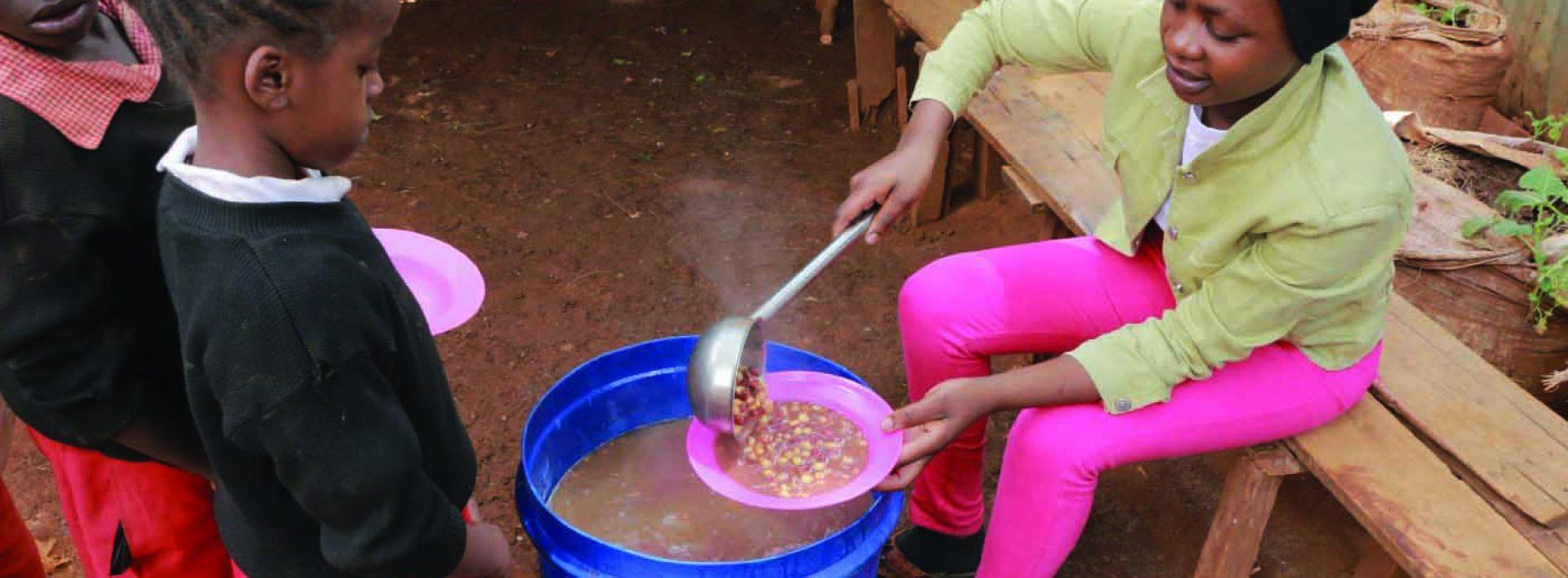Africa-Press – Lesotho. If you have walked the gravel roads of this here country and compared them to those of the lands of the continent of Africa you have never been to but have only seen in your imagination or some motion picture, there is one aspect the landscapes you see share; dry squalid conditions with all the signs of poverty laid bare for the traveller to somewhere to see.
There may be some slight pretence at wealth from those being viewed but the poverty is all there for one to see at the end of the day, cutting across all rank and class: poverty is an affair as common as the shoddy misspelt sign boards one comes across on their travels.
There are many points of contrast for one to use in the measuring of what we call poverty and it is more prevalent in the rural villages than the urban suburbs.
The latter community has many masks to hide their poverty; the suburban types can afford the cheap slice of polony and cheese sandwich in the now common though rather futile African show of splendour amidst poverty.
The poverty on the continent is a clear symptom of the depth of mental colonisation that has plagued the native from the day he tried really hard to impress the wandering colonial lord.
Conned into believing that the best face was that which belongs to another and not the self, the African became a wearer of different masks, the first being that of the imminent coloniser.
It became fashionable for the native to rid himself of his long-surviving history and customs in the name of being dapper and close in manner and appearance to the coloniser.
The African did not know that by abandoning their roots, they were literally behaving as a small boat venturing into the wide open sea without the sails and the strength to withstand the crash of the waves in the deep ocean.
It became fashionable to wear the western garment and to hunt existing animal species into extinction for their pelt. Even nature no longer had any sense and was therefore of no worth to the poor native who had chosen to forget the native ways that instilled the true tenets of conservation in the individual.
The bow and the arrow were not used in the mass killing of elephant herds for ivory; the meat was of more value to the African community. It is only with the advent of the colonial hunter and wandering mercenary that the elephant herds began to be hunted en masse for the ivory in their tusks.
Novices to the ways of the majestic creatures, the colonists often had some guide to show them where the herds were, and the same guide also had the role of being the nameless porter on foot (look through the histories of many of the famous ‘discoverers’ and you shall find that the names and surnames of their fellow African expedition members are not mentioned).
Weighed down by the load of the heavy elephant gun and supplies, the native would point to the marauding party where the herds were. He would also perform the hard task of hacking off the elephant tusks after the animals were shot, and then carrying them over the mountains and across rivers to the port where they would be shipped to be sold in some auction overseas.
Paid in trinkets and pantaloons, the native would be happy to go back to his village dressed in white man’s clothes. It did not matter if the shirts and coats were frayed or that the shoes and boots were scuffed, the native was happy with being the only monkey in a top hat and pantaloons.
The root to the poverty in this continent lies in its forgetting the power and modesty of the indigenous ways of living that were existent before the outsider came in.
It was actually beneficial to work together as a community in different endeavours and pursuits, and the polygamist ways of the more affluent members of the community were not wrong to the native because they had a meaning.
The benefit was lost when the outside word began to mean more to the native than the words of their own forefathers contained in the folktales and the rock paintings on the walls of the caves.
For the sake of pride, it became fashionable to be more like the ‘other’ than the self, meaning that the other self ended up phasing out the true self of the African individual.
It pays not to swallow a morsel of meat from an animal you never actually herded from a pasture you have never walked. This is the case with the occidental knowledges that the African is willing to inculcate into their being and community.
The fact of the matter is that Africa regresses because all those knowledges that the Africans are using have never become familiar enough to be of any use to the African continent.
What happened is that the African has always tried to measure up to something they do not understand, meaning that they constantly have to consult when it comes to the implementation of that which they vaguely understand. The Africans are given images of what they should be or what their instructor in western ways deems suitable enough for them.
Viewed as the untermensch of the world with lesser intelligence than their fellow human beings from the other parts of the world, the Africans receive either vestiges of these foreign knowledges or diluted versions thereof that are of no use when it comes to implementing them to effect any meaningful change or progress at an individual or communal level.
An example can be made of the current consumerist culture highly prevalent on the continent. It is very common to find a group of natives arguing over the qualities of an imported product than you can hear suggestions on what new locally produced goods can be promoted.
Even the talk about new local products is often hinged on their being similar to some foreign product that is already on the market; as if the African does not believe that their product can sell as well as those products.
There is a lack of self-belief in the potential power of local design, for the standards of production and implementation already set by the other parts of the world are what is referred to when it comes to making conclusive decisions on how to effect progress.
The African leader or individual that comes up with the suggestion that we should trust in our own potential is sure to face death or dismissal from peers that all too happy to promote western ideas, goods, and methods at the expense of their own equally competent ideas, goods, and methods.
Bantu Steven Biko tried to free the African mind as his predecessors Aime Cesaire and Leopold Sedar Senghor had done with his ‘Black Consciousness’ movement: he was killed by the Apartheid security police.
Thomas Sankara tried and proved to the world that the African country can achieve more than is precedented if there is belief in one’s potential. His words show that the colonial mindset is only powerful as far as it is practiced at the individual level.
Sankara said:
“I think the most important thing is to bring the people to a point where they have self-confidence, and understand that they can, at last …be the authors of their own wellbeing.
”
Killed by his own peers and junior officers, the beauty that Sankara had shown to his fellow countrymen regressed because they unlike him were all too willing to give in to the tendency of an independent but unweaned African state that is still all too dependent on the handouts from its former colonisers.
It is a culture that is still all too common in the present day where the African statesman is merely a begging middleman begging for aid for self-benefit and not the welfare of the people he or she is leading. Africa finds itself indebted to the rest of the world and in debt to many of the banks that provide aid in all its different forms.
It is as if the African creature has lost all pride to the extent that they are willing to be the baby of the world despite the fact that Africa is actually the location of the first human steps into the process of civilisation.
As said, those figures that dare disturb the misconstrued relations between the west and the African continent soon face their demise, because it has been beneficial to the westerner for more than a thousand years to tell the lie to the African that the African does not know enough to guide their own destiny.
When Muammar Gadaffi told the different conferences that he was at between African states that Africa could be an economic powerhouse, he was dismissed as ambitious.
He did not give up in his lectures with deeds and was killed as a common criminal by a mob of his fellow but brainwashed countrymen. The leadership on the African continent kept silent as the lynch mob went after the most venerable African statesman since Nkrumah and Lumumba.
Their silence stemmed from ignorance and self-interest so deep that it ignored all the visible efforts that this leader had made to see to the welfare of not only his people but also that of the citizens from neighbouring states.
Giving donations without the expectation of reward or compensation, Gadaffi aided his fellow African brothers and sisters freely, and he became a pariah for doing so.
The African he had tried to show how to get out of the mire of perpetual servitude actually brought about his demise because such an African was all too willing to help spread the propaganda the colonial masters of the world teach on a daily basis.
It does not make sense to be the Oliver Twist of the world when you in fact own an almost immeasurable bounty of natural reserves. You only are so poor because the lie you have been taught that you cannot do it on your own keeps being recycled each time you wise up to the fact that the old lie is actually not a truth.
In Africa, the scheming middlemen in all their different codes have actually served as agents for the oppression of their people from the day colonialism first set foot on the continent.
These are the figures that come with the idea that it is right to rob the local of their means of living for self-benefit. Locals are sold only the minute details on proposed ventures that are supposed to benefit everyone.
This leads to the locals being short-changed in terms of the rewards they are supposed to gain from such ventures. We have seen how wool and mohair farmers were promised paradise when the new government regulations were installed into law.
Many of them suffer after the system that had served them for well over 40 years was scrapped to benefit a few individuals. Basotho have grown their own marijuana for over a century, and many of them actually made a livelihood off it for a long period.
The new proposed ventures sideline them in terms of the cost of registration, and the rewards model from the renting of their fields is to this day not clear.
What one sees is that there are bands of buccaneers posing as agents giving bits of useless information on how the landowners shall be rewarded for sacrificing their prime crop growing fields for these new medical marijuana ventures.
The rewards model is of an unclear nature, and just like it occurred with the wool and mohair saga, the landowners stand to lose as the middlemen and the owners of the ventures reap huge rewards.
It is not at all a new phenomenon, it began the day the interpreting native lied about the real intentions of the colonial to his fellow illiterate African people. The phenomenon of underdevelopment still goes on this day under a different guise.
When Bantu Biko said the words:
In order that Black Consciousness can be used to advantage as a philosophy to apply to people in a position like ours, a number of points have to be observed.
As people existing in a continuous struggle for truth, we have to examine and question old concepts, values and systems. Having found the right answers we shall then work for consciousness among all people to make it possible for us to proceed towards putting these answers into effect.
In this process, we have to evolve our own schemes, forms and strategies to suit the need and situation, always keeping in mind our fundamental beliefs and values. It was in protest to the racial oppression perpetuated by Apartheid that dwarfed the very humanity of the black race in the state of South Africa.
Such a time is now gone that Mandela came along, the question however remains: how long shall Africa go on and be the baby of the world when Africa is potentially the breadbasket of the world? Only when Africa is rid of its colonial mentalities shall it truly be free from economic servitude that exarcebates poverty.






